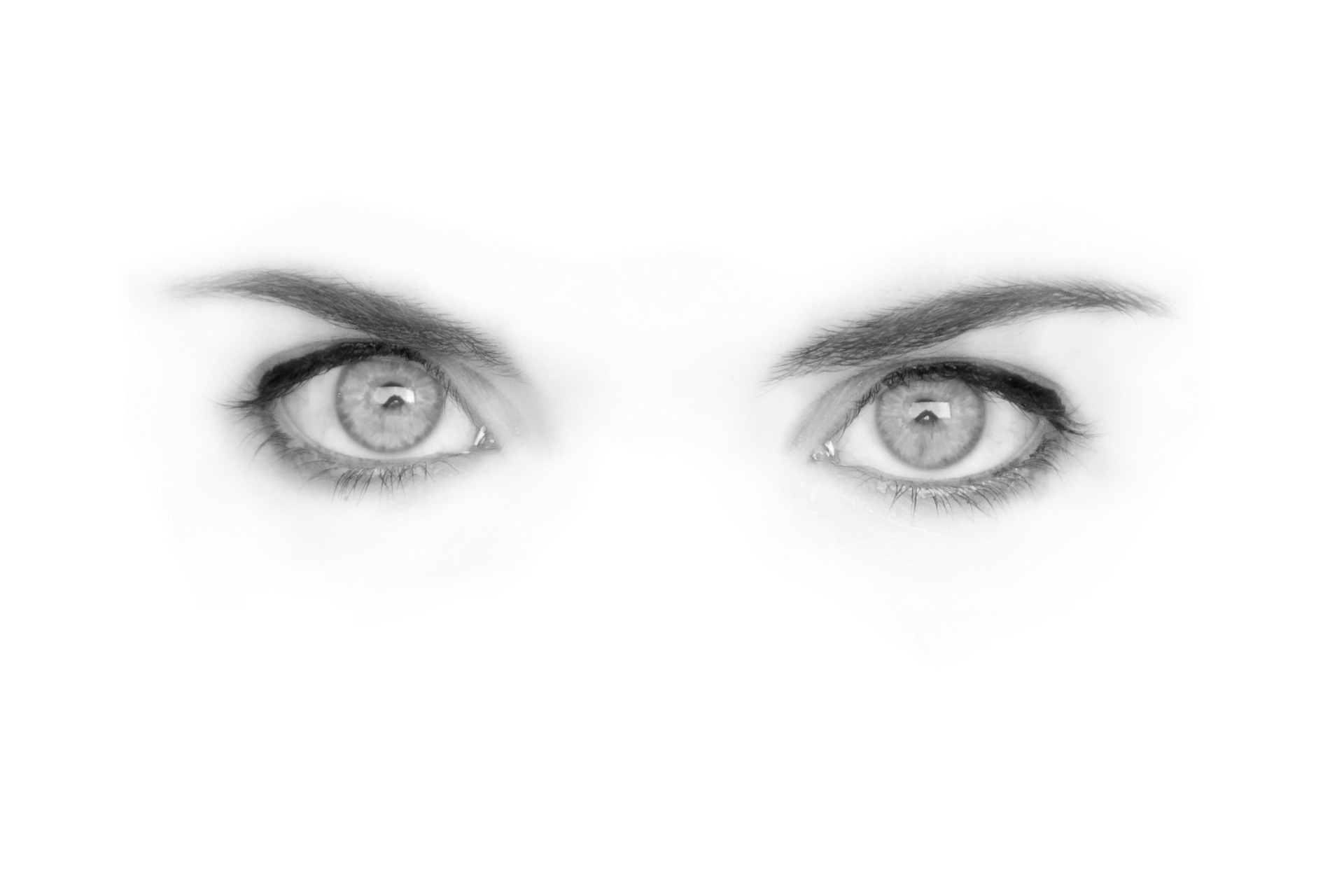What is body dysmorphic disorder (BDD)?
All of us have been guilty of saying that we don’t like the way we look, that there are certain aspects of us we wish we could change, that we would love to lose or gain a few pounds. But what if we couldn’t get through our day because we were so ashamed of how we look – that little thought of I don’t look good in this, turning into something so huge that it stops you from actually leaving the house?
Body Dysmorphic Disorder (BDD) is an anxiety disorder that distorts the view people have of their physical appearance. People suffering from BDD are not vain or self-obsessed, the anxiety they feel can be so debilitating and distressing that despite reassurances from people around them the individual feels as though they look abnormal.
You might be given a diagnosis of BDD if you:
- Experience obsessive worries about one or more perceived flaws in your physical appearance; the flaw cannot be seen by others or appears very slight.
- Develop compulsive behaviours and routines, such as excessive use of mirrors or picking your skin, to deal with the worries you have about the way you look.
Although BDD is not the same as Obsessive Compulsive Disorder (OCD), there are some similarities. For instance, the person may feel that they need to repeat certain acts, such as combing their hair, applying make-up, or picking their skin to make it ‘smooth’, before they feel that they can go out in public.
What are the common signs of BDD?
Although everyone’s experience of BDD is unique, there are some common signs. If you have BDD you can experience intrusive, negative thoughts about one specific area (or several areas) of your body which you think is:
- out of proportion
- too big or too small
- disfigured
- lacking symmetry
These thoughts can cause significant anxiety and people can often spend several hours a day thinking about these areas of concern.
I’ve struggled with BDD for 13 years. It changes. Sometimes it is something little, like my nose, that is really bothering me that day. Sometimes it is every centimetre of my body that just feels wrong.
 As you can see from the statement above, BDD affects people differently; in fact it can affect the same individual differently on a day to day basis, one day they might find that the anxiety caused by BDD is so severe that they are unable to leave the house, the next day they may feel that they can leave the house, but after completing certain behaviours such as putting on make-up. Many of us put on make-up, however we don’t feel ugly or defective if we had to pop to the supermarket without applying makeup. A person who suffers from BDD will apply a full face of makeup even if they had to go to the shop a couple of doors down. There was a case aired on television a few years ago about a teenage girl who would not come down from her bedroom without applying a full face of make-up every morning, her parents had not seen her without make-up for years.
As you can see from the statement above, BDD affects people differently; in fact it can affect the same individual differently on a day to day basis, one day they might find that the anxiety caused by BDD is so severe that they are unable to leave the house, the next day they may feel that they can leave the house, but after completing certain behaviours such as putting on make-up. Many of us put on make-up, however we don’t feel ugly or defective if we had to pop to the supermarket without applying makeup. A person who suffers from BDD will apply a full face of makeup even if they had to go to the shop a couple of doors down. There was a case aired on television a few years ago about a teenage girl who would not come down from her bedroom without applying a full face of make-up every morning, her parents had not seen her without make-up for years.
BDD does not affect only females, it affects males too, equally. It’s estimated that one in every 100 people in the UK may have BDD, although this may be an underestimation as people with the condition often hide it from others. BDD can affect all age groups, but usually starts when a person is a teenager or a young adult, when people are generally most sensitive about their appearance. BDD can grow with the person as they grow older, they may find ways of managing it, such as compulsive behaviours, exercise, dressing a certain way.
BDD can exist alongside other mental health conditions such as Obsessive Compulsive Disorder, Eating Disorders, Generalised Anxiety Disorder or even Social Anxiety Disorder. BDD can also cause:
- feelings of shame, guilt or loneliness
- isolating yourself to avoid situations that cause you anxiety or discomfort
- depression or anxiety
- misuse of alcohol or other drugs
- feeling you need unnecessary medical procedures, such as cosmetic surgery
- eating disorders
- self-harm
- suicidal thoughts
Many individuals with BDD do not seek help because they are worried that they will be judged, this leaves them in a very vulnerable place, with no-one to turn to. They may feel that they are unable to talk to their friends or family, as their friends and family will think they are seeking attention. For someone with BDD, attention is the last thing they want to attract, consequently the individual may go a long time before seeking support.
If you have a loved one that is suffering from BBD, it can be upsetting and frustrating to see them go through their day-to-day life controlled by their anxieties and worries. However there are some things you can do to support them:
Accept their feelings. While you may not understand their thoughts and concerns about their appearance, it can really help if you accept what they are feeling is very real to them. Unconditional support, and even support without ‘guidance and suggestions’ can go a long way in helping your loved one feel accepted and able to seek professional help.
Offer space to talk. People suffering from BDD can find it very difficult to speak about their thoughts and feelings, as they could be embarrassed. Letting them know that they can say anything to you without the fear of judgement can become the first step in seeking help.
Offer support. Your loved one may be scared of asking for help; they may not know where to even start looking for help. Finding support groups, encouraging them to go see their GP or a therapist can help get them started on the path to recovery. The focus here is on them receiving the help they need; if they are resisting you, they might not be ready, in which case you will need to respect that, and support them in any way you can. You can offer practical support, such as helping with childcare, or household chores, just so they can have a few afternoons to themselves.
Celebrate their successes. Stopping compulsive behaviours can be a very long and difficult process; there may be times when your loved one suffers a relapse (which is normal, when we’re trying to change behaviours) and they may feel like giving up. Celebrating the small steps, such as spending less time grooming or carrying out fewer repetitions, can help keep your loved one motivated.
Don’t take it personally. If your loved one doesn’t want to talk or see you, or you can see that they have started to withdraw into themselves again, try and be aware that it’s their negative feelings and thoughts about their appearance that is causing them to pull away from social contact, rather than something you have done or said. Being patient and allowing them the space to process their feelings without any pressure from you, can build trust and closeness between you.
Learn their triggers. Some people with BDD find certain situations difficult and find that they provoke more anxious behaviour. Sometimes these situations cannot be avoided (for example, seeing mirrors in shops or public toilets) but taking steps to gradually build up to experiencing those situations, and being there with them as an emotional support may help.
Boost their confidence. Encourage them to do the things they enjoy. Offering them praise that doesn’t focus on the way they look can also help to raise their self-esteem.
Get support for yourself. It can be distressing and very emotionally draining to see someone you love suffer with BDD, and feel powerless to help them. It can be useful to talk about your feelings with people that are in a similar situation to yours through support groups, or even speaking to a healthcare professional may give you the coping strategies you need to look after your own needs as well as be there to support your loved one.
What causes BDD?
 There appears to be certain risk factors that are linked to the development of BDD, however this does not mean that individuals who do go through these experiences will develop anxiety or BDD, it just means that they have an increased likelihood of developing BDD.
There appears to be certain risk factors that are linked to the development of BDD, however this does not mean that individuals who do go through these experiences will develop anxiety or BDD, it just means that they have an increased likelihood of developing BDD.
Abuse and bullying. Experiencing abuse or bullying can cause you to develop a negative self-image especially if you experience abuse or bullying when you are a teenager – when you may be more sensitive about the way you look or how your body is changing.
Low self-esteem. If you have low self-esteem, you may become fixated on aspects of your appearance that you want to improve.
Fear of being alone or isolated. If you worry about not fitting into a group of friends or being lonely, you may develop thought patterns that can lead to BDD. For example, if you believe that you need to look a certain way to maintain friends or find a partner, you may develop unhealthy concerns about your appearance. If a relationship then breaks down or a friendship group changes, this could then compound the belief that it may have had something to do with your appearance, even though it wasn’t.
Perfectionism. If you want to appear physically ‘perfect’ or you regularly compare your appearance to other people, you may be more likely to develop anxiety about your body. If you have a hobby or job that is very focused on your body for example, modelling or bodybuilding – you may be at greater risk because people judge you by your looks, that could lead you to be overly critical of yourself.
Genetics. There is some evidence that suggests BDD is more common in people whose family members also have BDD, but it’s difficult to prove as you could develop it from learnt behaviour – from your parents or other adults around you as you were growing up.
Psychotherapy can uncover the cause of BDD, and help address and change behaviours. If you want to talk to someone regarding the issues raised in this blog, please contact us. We are offering a free two week trial for online counselling.


Leave a Reply